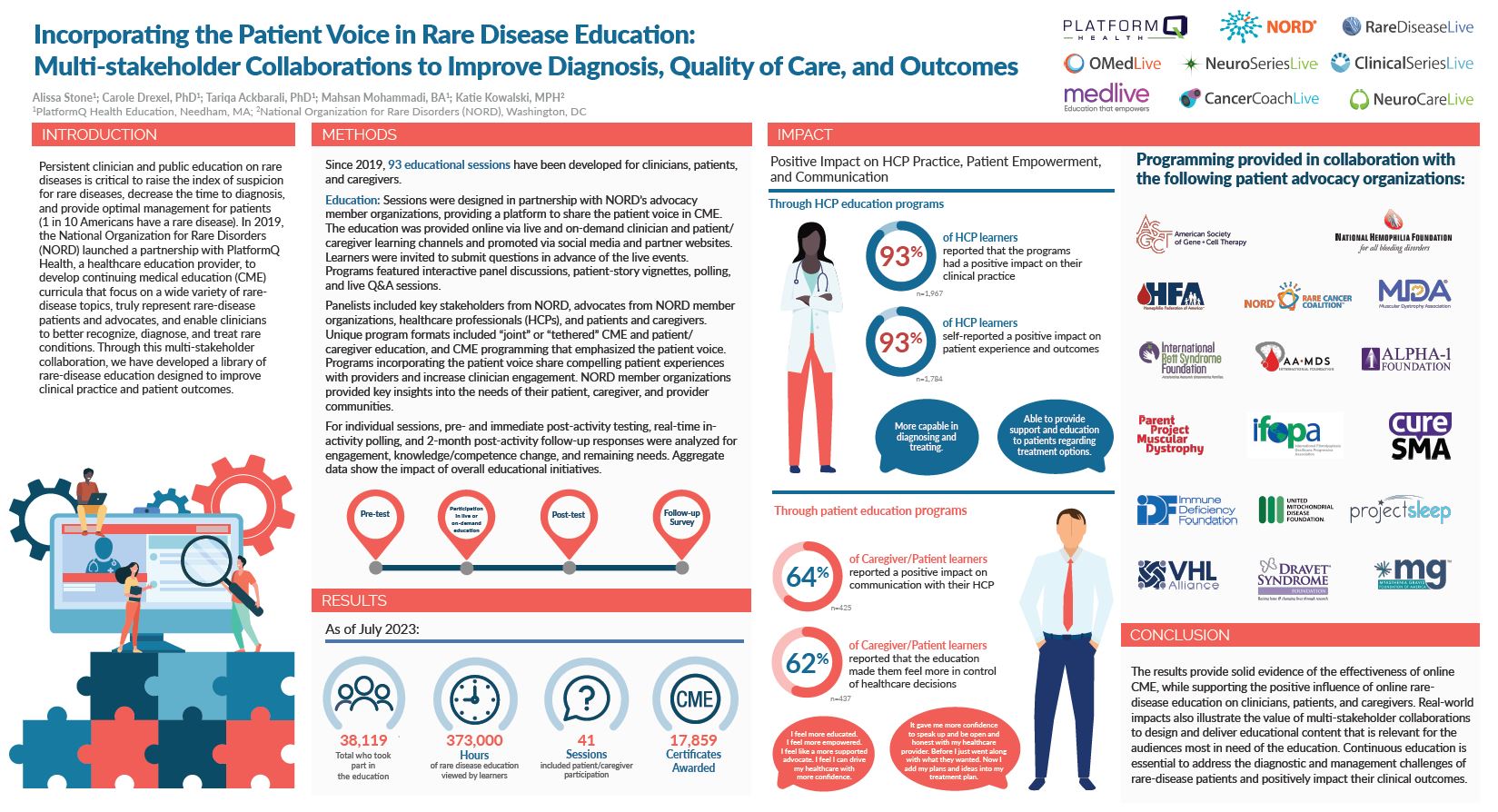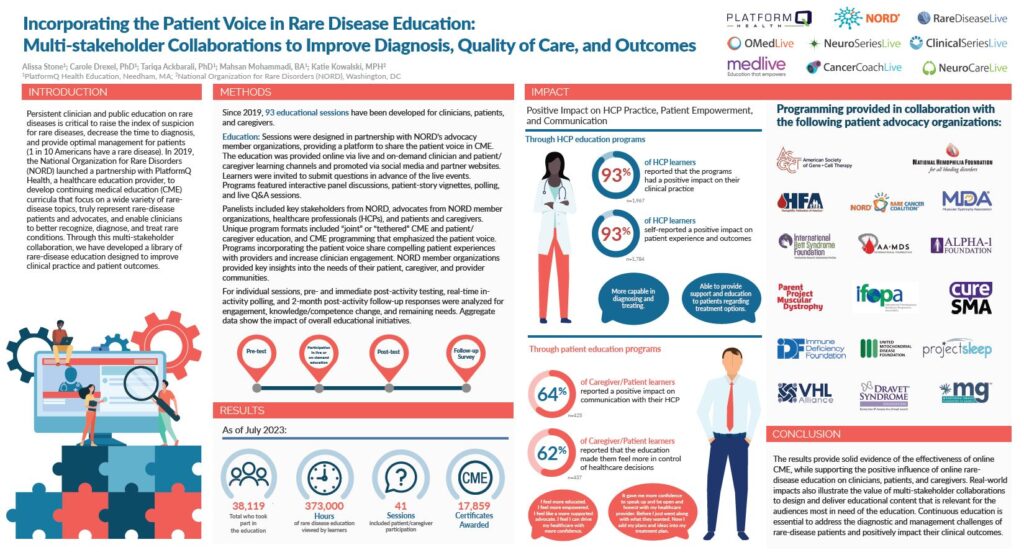PlatformQ Health is excited to share that our poster session “Incorporating the Patient Voice in Rare Disease Education: Multi Stakeholder Collaborations to Improve Diagnosis, Quality of Care, and Outcomes” was selected to be presented both at the 2023 NORD Breakthrough Summit and at the Lighting Round Poster Presentations taking place from 4:30-5:00 PM on Monday, October 16.
Taking place from October 15-17 at the Marriott Marquis in Washington D.C, the NORD Breakthrough Summit brings together healthcare professionals to address issues such as gene editing, equitable access to care, and more, that impact the rare disease community. On average, it takes 5-7 years before a patient with a rare disease receives a diagnosis. Public education as well as clinician education is essential for shortening this diagnostic journey and improving patients’ quality of life.
Since 2019, the National Organization for Rare Disorders (NORD) and PlatformQ Health have partnered to develop a robust series of CME and patient/caregiver education focused on a variety of rare diseases. The programs were designed in partnership with numerous patient advocacy and member organizations, such as the American Society of Gene + Cell Therapy, CureSMA, and the Immune Deficiency Foundation. To date, the organizations have produced 93 educational sessions for clinicians, patients, and caregivers.
In addition to providing access to specialists in rare diseases, the programs bring forth patient voices. These patient vignettes help clinicians to better understand the patient experience and help patients and caregivers hear from others who have faced similar journeys to theirs.

Click here to download the full poster.
The positive impact of this education has been profound, with more than 38,119 learners participating across 373,000 hours. 93% of clinicians reported that the programs had a positive impact on their clinical practice, as well as patient experience and outcomes. 64% of caregivers and patients also shared that the programs had a positive impact on communication with their clinician, and 62% reported that the education helped them feel more in control of their healthcare decisions.
These real-world outcomes also demonstrate the importance of multi-stakeholder collaboration in the design of rare disease education. Continual education such as multi-year programs and tethered programs is needed to further address the challenges of diagnosing and managing rare conditions.

